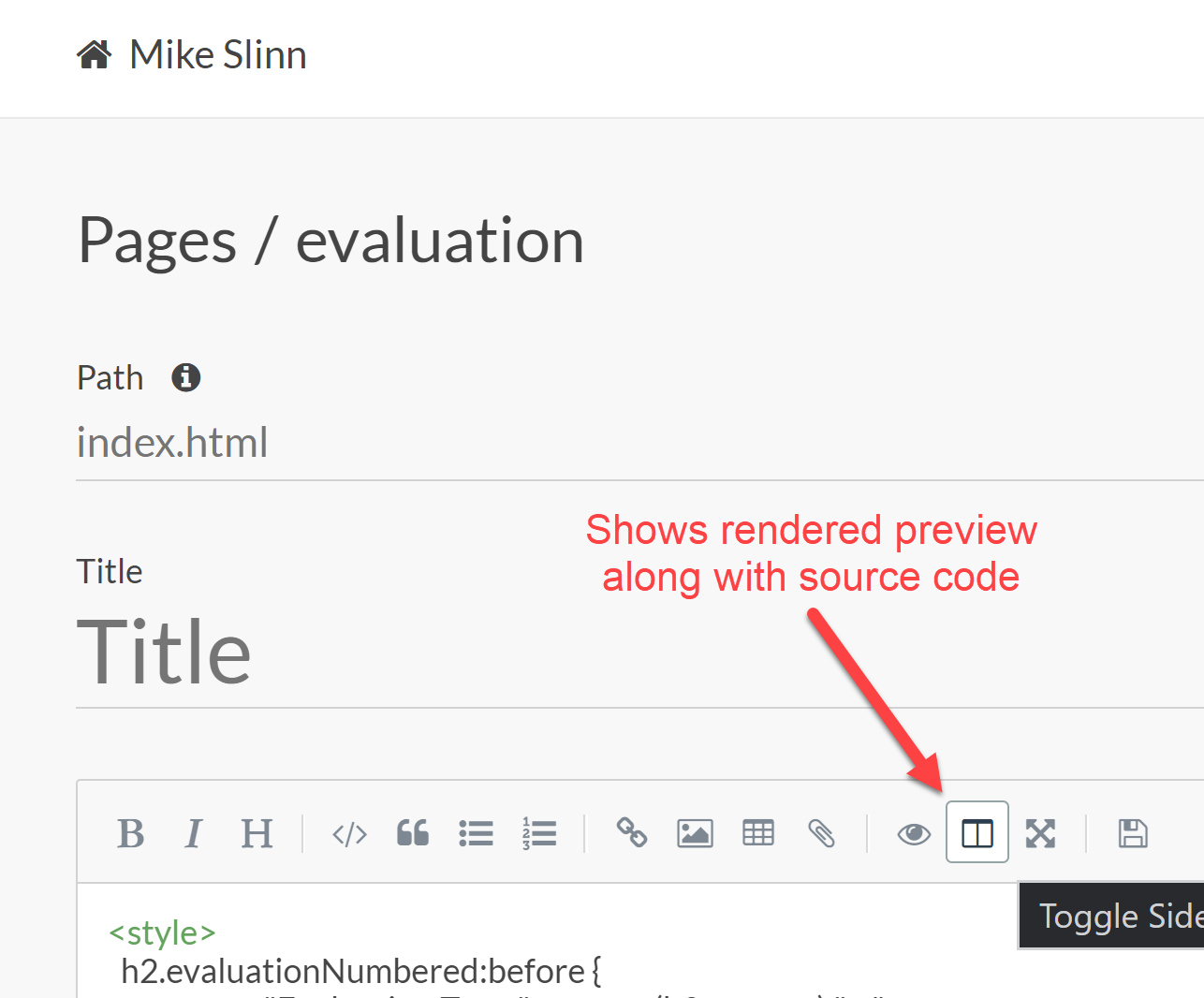Published 2017-01-08.
Last modified 2025-11-08.
Time to read: 2 minutes.
jekyll collection.
These are my notes for setting up Jekyll using Ubuntu or Windows Subsystem for Linux. They assume that the instructions in Setting Up a Ruby Development Environment were previously followed.
Update 2023-12-02
Jekyll v4.3.2 uses v2.6.3 of thejson gem.
v2.7.0 of the json gem was released December 01, 2023.
This broke Jekyll, causing Jekyll to crash when reloading a modified site with this error:
gems/json-2.7.0/lib/json/common.rb:614:in `dump':
wrong number of arguments (given 0, expected 1..3) (ArgumentError).
Ensure that a compatible version of the
json gem is loaded by
specifying version 2.6.3 in your Jekyll website’s Gemfile,
as shown in the following instructions.
Make a Gemfile with the following contents:
source "https://rubygems.org"
gem 'jekyll' gem 'json', '=2.6.3' # Remove this entry when Jekyll 4.3.3+ is released
group :jekyll_plugins do gem 'jekyll-admin', '>= 0.1.1' gem 'jekyll-assets', git: 'https://github.com/envygeeks/jekyll-assets' gem 'jekyll-docs' gem 'jekyll-redirect-from' gem 'jekyll-seo-tag' gem 'jekyll-sitemap' gem 'jekyll-sort' gem 'jekyll-tagging' gem 'kramdown' end
group :test, :development do gem 'debase', "0.2.5.beta2", require: false gem 'ruby-debug-ide', require: false gem 'rake', require: false gem 'rubocop', require: false gem 'rubocop-performance', require: false gem 'rubocop-rake', require: false gem 'rspec', require: false end
jekyll-assets
has not released a new gem since Nov 13, 2018.
The most recent gem, v3.0.12, has dependencies with serious security issues.
Until a new jekyll-assets gem is released,
use the unstable mechanism shown above to build and install the gem from git HEAD.
Building from head uses more recent dependencies, and thereby avoids the security issues.
Here are the security issues for the current version of jekyll-assets:
$ bundle audit Name: rack Version: 1.6.13 CVE: CVE-2020-8161 GHSA: GHSA-5f9h-9pjv-v6j7 Criticality: High URL: https://groups.google.com/forum/#!topic/ruby-security-ann/T4ZIsfRf2eA Title: Directory traversal in Rack::Directory app bundled with Rack Solution: upgrade to '~> 2.1.3', '>= 2.2.0'
Name: rack Version: 1.6.13 CVE: CVE-2020-8184 GHSA: GHSA-j6w9-fv6q-3q52 Criticality: High URL: https://groups.google.com/g/rubyonrails-security/c/OWtmozPH9Ak Title: Percent-encoded cookies can be used to overwrite existing prefixed cookie names Solution: upgrade to '~> 2.1.4', '>= 2.2.3'
Name: rack Version: 1.6.13 CVE: CVE-2022-30122 GHSA: GHSA-hxqx-xwvh-44m2 Criticality: High URL: https://groups.google.com/g/ruby-security-ann/c/L2Axto442qk Title: Denial of Service Vulnerability in Rack Multipart Parsing Solution: upgrade to '~> 2.0.9, >= 2.0.9.1', '~> 2.1.4, >= 2.1.4.1', '>= 2.2.3.1'
Name: rack Version: 1.6.13 CVE: CVE-2022-30123 GHSA: GHSA-wq4h-7r42-5hrr Criticality: Critical URL: https://groups.google.com/g/ruby-security-ann/c/LWB10kWzag8 Title: Possible shell escape sequence injection vulnerability in Rack Solution: upgrade to '~> 2.0.9, >= 2.0.9.1', '~> 2.1.4, >= 2.1.4.1', '>= 2.2.3.1'
Name: rack Version: 1.6.13 CVE: CVE-2022-44570 GHSA: GHSA-65f5-mfpf-vfhj Criticality: Unknown URL: https://github.com/rack/rack/releases/tag/v3.0.4.1 Title: Denial of service via header parsing in Rack Solution: upgrade to '~> 2.0.9, >= 2.0.9.2', '~> 2.1.4, >= 2.1.4.2', '~> 2.2.6, >= 2.2.6.2', '>= 3.0.4.1'
Name: rack Version: 1.6.13 CVE: CVE-2022-44571 GHSA: GHSA-93pm-5p5f-3ghx Criticality: Unknown URL: https://github.com/rack/rack/releases/tag/v3.0.4.1 Title: Denial of Service Vulnerability in Rack Content-Disposition parsing Solution: upgrade to '~> 2.0.9, >= 2.0.9.2', '~> 2.1.4, >= 2.1.4.2', '~> 2.2.6, >= 2.2.6.1', '>= 3.0.4.1'
Name: rack Version: 1.6.13 CVE: CVE-2022-44572 GHSA: GHSA-rqv2-275x-2jq5 Criticality: Unknown URL: https://github.com/rack/rack/releases/tag/v3.0.4.1 Title: Denial of service via multipart parsing in Rack Solution: upgrade to '~> 2.0.9, >= 2.0.9.2', '~> 2.1.4, >= 2.1.4.2', '~> 2.2.6, >= 2.2.6.1', '>= 3.0.4.1'
Name: sinatra Version: 1.4.8 CVE: CVE-2022-29970 GHSA: GHSA-qp49-3pvw-x4m5 Criticality: High URL: https://github.com/sinatra/sinatra/pull/1683 Title: sinatra does not validate expanded path matches Solution: upgrade to '>= 2.2.0'
Name: sinatra Version: 1.4.8 CVE: CVE-2022-45442 GHSA: GHSA-2x8x-jmrp-phxw Criticality: High URL: https://github.com/sinatra/sinatra/security/advisories/GHSA-2x8x-jmrp-phxw Title: Sinatra vulnerable to Reflected File Download attack Solution: upgrade to '~> 2.2.3', '>= 3.0.4'
Create _config.yml and modify the following contents to suit:
author: Sally Smith
compress_html:
blanklines: false
clippings: all
comments: [""]
endings: all
ignore:
envs: [development]
profile: false
startings: [html, head, body]
domain: supersally.com
exclude: # Wildcards are not supported yet https://github.com/jekyll/jekyll-watch/pull/93
- _bin
- .git
- .github
- .gitignore
- .jekyll-cache
- .jekyll-metadata
- .ruby-version
- .vscode
- BingSiteAuth.xml
- Gemfile
- Gemfile.lock
- README.md
- script
email: sally@supersally.com
exclude: [vendor]
jekyll_admin:
hidden_links:
# - posts
# - pages
# - staticfiles
# - datafiles
# - configuration
# homepage: "pages"
kramdown:
hard_wrap: false
line_width: 120
liquid:
error_mode: strict
# strict_filters: true
# strict_variables: true
markdown: kramdown
permalink: /blog/:year/:month/:day/:title:output_ext
plugins:
- html-proofer,
- jekyll,
- jekyll-admin,
- jekyll-assets,
- jekyll-docs,
- jekyll-environment-variables
- jekyll-feed
- jekyll-redirect-from
- jekyll-sitemap
- jekyll-youtube
- kramdown
sass:
style: compressed
title: Journal of Sally Smith, Superwoman
url: https://www.supersally.com
I learned the hard way that the hidden directory .jekyll-cache/ is created when Jekyll runs.
It might contain environment variables, including your authentication keys and tokens for all your online services!!!!
Add this directory to .gitignore:
$ echo .jekyll-cache/ >> .gitignore
Running Jekyll
Below is how you can obtain the most current Jekyll documentation. Read it!
$ bundle exec jekyll docs
For most operating systems, you can run Jekyll this way:
$ bundle exec jekyll serve
Read
about how Bash does not yet support watched directories in NTFS volumes properly.
To compensate, use the --force_polling option:
$ bundle exec jekyll serve --force_polling
The jekyll command has more options, and you probably want to use them.
Use the --drafts option to preview draft articles in the _drafts directory.
If you stored your Jekyll website on an NTFS volume, type:
$ bundle exec jekyll serve --force_polling --drafts
For all other types of volumes:
$ bundle exec jekyll serve --drafts
Visual Blog Editor
Several Jekyll content editors exist.
The above instructions installed jekyll-admin.
Run Jekyll as described above and navigate to http://localhost:4000/admin
to access the administrative interface.

Enable the "side-by-side" editor/preview feature as shown above.
I use Visual Studio Code to edit the content for this Jekyll website, and I preview the live site locally as I work. The next article, Publishing a Draft Article in a Jekyll Collection, describes how to do that.
Kramdown Within HTML
If you have a variable containing Markdown-formatted text, you can use the markdownify filter to convert the Markdown to HTML.
The following code example creates a variable called markdown
containing the highlighted lines of text.
The variable is then piped through the markdownify filter
and dumped onto the page.
{% capture markdown %}
# This is the heading
Here is a paragraph.
- point 1
- no point
The end
{% endcapture %}
{{ markdown | markdownify }}
Renders as:
This is the heading
Here is a paragraph.
- point 1
- no point
The end
Column Edit Mode
Use ALT+SHIFT+Up arrow/Down arrow to select multiple rows at the column where the cursor is. Type to enter characters on all selected lines; Del deletes characters on multipl lines.
Esc ends multi-select mode.














